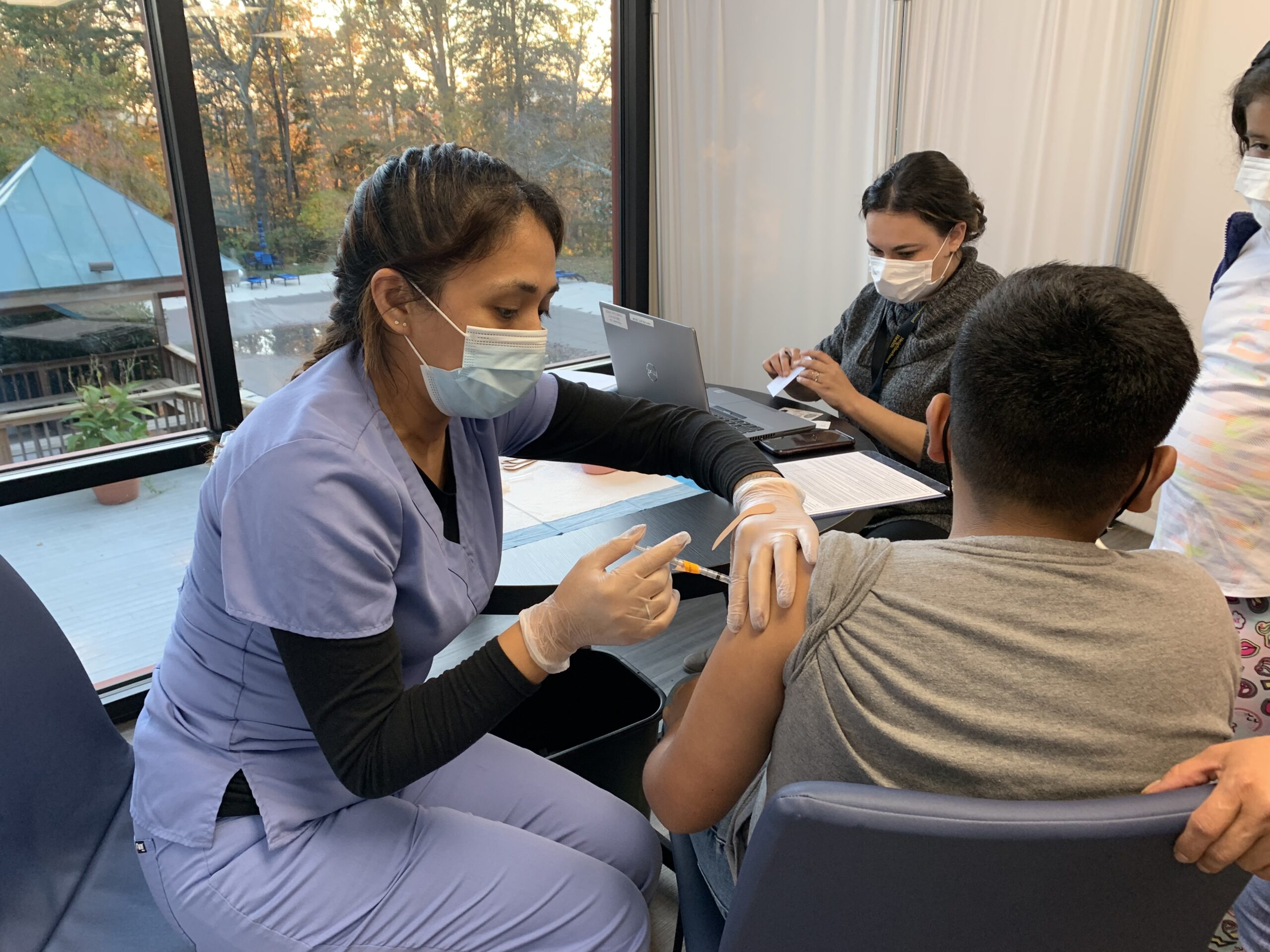House and Senate panels reject push to insure undocumented children in Virginia – Virginia Mercury

A push to expand state health insurance to undocumented children in Virginia ended Tuesday after House and Senate panels blocked bills aimed at adding to the state’s coverage.
The legislation, filed by Sen. Jennifer McClellan, D-Richmond, and Del. Kathy Tran, D-Fairfax, would have directed the state’s Medicaid program to develop an insurance option for Virginians under the age of 19 regardless of immigration status. The benefits would have included medical, dental and behavioral health treatment and covered an estimated 13,000 low-income children whose legal status makes them ineligible for any form of publicly subsidized insurance.
Sen. Jennifer McClellan, D-Richmond, adresses Senate members during the floor session in the temporary Virginia Senate chamber inside the Science Museum of Virginia in Richmond, VA Friday, August 28, 2020. (Pool photo by Bob Brown/ Richmond Times-Dispatch)
Advocates have described the lack of benefits for undocumented children as one of the last major gaps in Virginia’s state-provided coverage since lawmakers voted to expand Medicaid in 2018. One analysis by The Commonwealth Institute, a Richmond-based think tank, estimated the legislation would have covered at least 10 percent of the roughly 96,000 children in Virginia without health care coverage.
Some of those children may have access to primary care through free clinics or federally qualified health centers, but struggle to access dental treatment or other specialized services covered under the state’s program.
“Think of cases where they might need to see a pulmonologist or need to order a radiology test,” said Dr. Basim Khan, executive director of Neighborhood Health, a network of federally qualified health centers in Northern Virginia. “You can imagine that compared to someone who has health insurance, it’s so much harder for these families to access care.”
“A four-year-old patient has hand deformity that won’t allow him to write or to catch a ball,” added Dr. Megan Prior, a physician with Neighborhood Health who spoke in favor of the House bill on behalf of the Virginia chapter of the American Academy of Pediatrics. “He saw a surgeon through a charity care program, but the surgery itself is not covered.”
At least six states and Washington, D.C. have adopted similar programs, but the legislation faced an uphill battle in the Republican-controlled House of Delegates, where lawmakers have historically opposed efforts to further expand the state’s Medicaid program and extend benefits to undocumented immigrants. Senate committee members of both parties also had little appetite for the legislation, which came with a substantial price rage despite covering a relatively small number of children.
Fiscal impact statements for both bills estimated the yearly cost to Virginia would reach close to $20 million by 2025 — including the administrative expenses of running the program. And while states can draw on federal Medicaid funding to cover emergency care for undocumented residents, preventative services would come entirely from the state’s general fund.
“We think the emergency carveout is important because it could bring the fiscal impact down a little lower,” said Freddy Mejia, a policy analyst for The Commonwealth Institute. “But that’s the only real mechanism for the federal government to get involved in some of the coverage.”
The high projected cost, combined with expected opposition to the bill, led lawmakers on the Senate Finance and Appropriations Committee to unanimously reject McClellan’s bill. “The politics of the moment and the costs make me wonder if we would be better served putting language in the budget to have this kind of program fleshed out rather than face the formidable task of getting it through the House with this price tag,” Sen. Emmett Hanger, R-Augusta, said in a hearing the day before.
 Del. Kathy Tran, D-Fairfax, talks to a colleague on the floor of the House. (Ned Oliver/Virginia Mercury)
Del. Kathy Tran, D-Fairfax, talks to a colleague on the floor of the House. (Ned Oliver/Virginia Mercury)
Senate lawmakers did recommend adding budget language directing the Virginia Department of Medical Assistance Services to study the issue — a motion that wasn’t mirrored in the House. Tran’s bill failed in a tied vote that saw Del. Roxann Robinson, R-Chesterfield, join Democratic panel members in supporting the legislation.
Supporters of the bill argued that providing more Virginians with primary care would ultimately lower health care costs for the state, reducing unnecessary hospitalizations driven by delayed — or complete lack of access — to preventative services. Tran emphasized the legislation would cover a broad range of children, including refugees.
“I just want to be clear — these are children who are undocumented, and they could also be children who have come recently from Afghanistan who are humanitarian parolees, whose coverage may end at some point under Medicaid,” she said. “So they would then be eligible for this program. It gives you a sense of who this would affect.”

